ড. আশরাফুল আলম বাংলাদেশের একজন নবায়নযোগ্য জৈব জ্বালানি গবেষক। তিনি University of Development Alternative (UODA) থেকে বায়োটেকনোলজি ও জেনেটিক ইঞ্জিনিয়ারিং এ স্নাতক ও স্নাতকোত্তর ডিগ্রি অর্জন করেন। এরপর তিনি চীনের Dalian University of Technology থেকে পিএইচডি ডিগ্রি লাভ করেন। বর্তমানে তিনি চীনের Guangzhou Institute of Energy Conversion, Chinese Academy of Sciences-এ গবেষণা করছেন।
ড. আলমের গবেষণার মূল ক্ষেত্র হলো মাইক্রো শৈবাল থেকে তরল জ্বালানি উৎপাদন, বিশেষ করে বায়ো-ডিজেল ও বায়ো-ইথানল তৈরি প্রক্রিয়া। তিনি শৈবাল হ্যার্ভেস্টিংয়ের জন্য নতুন Biofocculation প্রযুক্তি উদ্ভাবন করেছেন এবং ভেজা শৈবাল থেকে একধাপ প্রক্রিয়ায় বায়ো-ডিজেল উৎপাদনের কাজ করছেন। তাঁর কাজ অর্থনৈতিক ও পরিবেশগতভাবে গুরুত্বপূর্ণ বলে স্বীকৃত। ড. আলম চীনে গবেষণা করছেন, তবে বাংলাদেশের নবীন বিজ্ঞানীদের অনুপ্রেরণার উৎস হিসেবে তিনি পরিচিত।
💬 প্রশ্নোত্তর পর্ব:
প্রশ্ন: আপনার গবেষণার বিষয়বস্তু কী?
উত্তর: আমি গবেষণা করি নবায়নযোগ্য জৈব জ্বালানি নিয়ে। বিশেষ করে সবুজ শৈবাল (algae) থেকে তরল জ্বালানি যেমন বায়ো-ডিজেল ও বায়ো-ইথানল তৈরি করা।
প্রশ্ন: আপনার প্রাপ্ত আবিষ্কার কোন কোন ক্ষেত্রে অবদান রাখবে?
উত্তর: আমরা মাইক্রো শৈবাল ব্যবহার করি। আমার পিএইচডি গবেষণার মূল লক্ষ্য ছিল পানি থেকে ক্ষুদ্র শৈবাল কম খরচে সংগ্রহ করা। Biofocculation নামের নতুন পদ্ধতি উদ্ভাবন করেছি, যা অর্থনৈতিক ও পরিবেশগতভাবে গুরুত্বপূর্ণ। এছাড়া আমরা জেনেটিক ইঞ্জিনিয়ারিং প্রক্রিয়ায় দুটি নতুন শৈবাল পেয়েছি, যাদের flocculation হার সাধারণ শৈবালের তুলনায় অনেক বেশি। শৈবাল শুকানো ছাড়া ভেজা শৈবাল থেকে একধাপ বায়ো-ডিজেল উৎপাদনের প্রক্রিয়াও আমরা উদ্ভাবন করেছি। বর্তমানে আমরা পাইলট স্টেজে পুরো প্রক্রিয়া অপটিমাইজ করছি।
প্রশ্ন: চীনে গবেষণা করতে কেমন লাগছে?
উত্তর: চীনের গবেষণা প্রতিষ্ঠান ও বিশ্ববিদ্যালয় আন্তর্জাতিক মানের সুযোগ সুবিধা প্রদান করে। এখানে আমার নিজস্ব প্রোজেক্টসহ তিনটি প্রোজেক্টে কাজ করছি। গত দুই বছরে ১৫টি গবেষণা প্রবন্ধ প্রকাশ করেছি এবং ৬টি আন্তর্জাতিক বিজ্ঞান সম্মেলনে অংশ নিয়েছি। গবেষণা পরিবেশে কাজ করতে আমি আনন্দ অনুভব করছি।
প্রশ্ন: চাইনিজ একাডেমী অফ সায়েন্স সম্পর্কে বলুন।
উত্তর: চাইনিজ একাডেমী অফ সায়েন্সকে আমি Innovation of Powerhouse হিসেবে দেখাই। ১৯৪৯ সালে প্রতিষ্ঠিত এই সংস্থায় ১০৪ গবেষণা ইন্সটিটিউট, ৩ বিশ্ববিদ্যালয়, ৩৯টি প্রযুক্তি ট্রান্সফার সেন্টার রয়েছে। এখানে প্রায় ৭০,০০০ জন কাজ করেন, যাদের মধ্যে ৬০,০০০ জন গবেষক। আমি Guangzhou Institute of Energy Conversion-এ কাজ করছি, যেখানে নবায়নযোগ্য জ্বালানি বিষয়ে গবেষণা হয়।
প্রশ্ন: চীনের বিজ্ঞান গবেষণায় নেতৃত্বের রহস্য কী?
উত্তর: চীনের গবেষণায় বিনিয়োগ, উচ্চমানের বুদ্ধিবৃত্তিক পরিবেশ এবং সরকারের কার্যকর নেতৃত্বের ফলে তারা বিশ্বে নেতৃত্ব দিচ্ছে। গবেষক ও শিক্ষার্থীদের সঠিক প্রশিক্ষণ, আর্টিকেল প্রকাশনা ও ফান্ডিং ব্যবস্থা চীনের বিজ্ঞানকে এগিয়ে দিয়েছে।
প্রশ্ন: কে আপনাকে বৈজ্ঞানিক হবার জন্য উৎসাহ দিয়েছে?
উত্তর: পরিবারের প্রেরণা এবং হাই স্কুল জীববিজ্ঞানের শিক্ষক জনাব হান্নান স্যার প্রথম অনুপ্রেরণা দিয়েছেন। এরপর বিশ্ববিদ্যালয় ও পিএইচডি মেন্টররা আমাকে গবেষণার পথ দেখিয়েছেন। বর্তমান বস প্রফেসর জংমিং ওয়াং আমাকে গবেষণার স্বাধীনতা প্রদান করছেন।
প্রশ্ন: আপনার ভবিষ্যৎ পরিকল্পনা কী?
উত্তর: জৈব জ্বালানির উন্নয়নে গবেষণা চালিয়ে যাওয়া এবং বাংলাদেশের জ্বালানি সমস্যায় অবদান রাখা। পাশাপাশি দেশের বিজ্ঞান ও নিজের এলাকার (মেঘনা উপজেলা) শিক্ষা ও সামাজিক উন্নয়নে কাজ করা।
প্রশ্ন: নবীন প্রজন্মের জন্য আপনার বার্তা কী?
উত্তর: বাংলাদেশের নবীন বিজ্ঞানীদের উপদেশ হলো, প্রথমে দেশের বিশ্ববিদ্যালয় থেকে ডিগ্রি অর্জন করে চীন, কোরিয়া ইত্যাদিতে মাস্টার্স ও PhD করতে বৃত্তির আবেদন করা। এতে গবেষণার বাস্তব পরিবেশ ও প্রযুক্তি শেখা সম্ভব হবে।
প্রশ্ন: সাক্ষাৎকারের জন্য ধন্যবাদ।
উত্তর: বিজ্ঞানী.অর্গ এবং পাঠকদের ধন্যবাদ।
ড. আশরাফুল আলমের গবেষণা নবায়নযোগ্য জৈব জ্বালানির ক্ষেত্রে গুরুত্বপূর্ণ উদ্ভাবন ও পরিবেশ বান্ধব প্রযুক্তির দিক নির্দেশ করছে। তাঁর একধাপ শৈবাল থেকে বায়ো-ডিজেল উৎপাদন পদ্ধতি এবং Biofocculation প্রযুক্তি অর্থনৈতিকভাবে জ্বালানি শিল্পে নতুন সম্ভাবনা সৃষ্টি করছে। biggani.org টিম ড. আলমকে ভবিষ্যতের গবেষণা ও বাংলাদেশের বিজ্ঞান সম্প্রসারণে সাফল্যের জন্য শুভেচ্ছা জানাচ্ছে। তাঁর অধ্যবসায় ও উদ্ভাবন বাংলাদেশের তরুণ বিজ্ঞানীদের জন্য অনুপ্রেরণার উৎস হোক।
Unlocking Renewable Bio-Energy: A Conversation with Dr. Ashraful Alam
Dr. Ashraful Alam is a Bangladeshi researcher specializing in renewable bio-energy. He completed his undergraduate and master’s degrees in Biotechnology and Genetic Engineering at the University of Development Alternative (UODA), Bangladesh, and obtained his PhD from Dalian University of Technology, China.
Currently, Dr. Alam conducts research at the Guangzhou Institute of Energy Conversion, Chinese Academy of Sciences. His research focuses on producing liquid fuels such as bio-diesel and bio-ethanol from microalgae. He has developed a novel Biofocculation method to reduce harvesting costs and created genetically engineered algae strains with enhanced flocculation rates. Furthermore, he has pioneered a one-step process to produce biodiesel directly from wet algae, eliminating the need for drying and improving overall cost efficiency. His work has both economic and environmental significance and contributes to sustainable energy solutions.
💬 Q&A Session:
Q: What is the focus of your research?
A: I conduct research on renewable bio-energy, specifically producing liquid fuels such as bio-diesel and bio-ethanol from microalgae.
Q: How will your discoveries contribute to the field?
A: We use microalgae in our research. My PhD focused on finding cost-effective ways to harvest small algae from water. We developed a method called Biofocculation, which is considered economically and environmentally valuable. We also engineered two new algae strains with much higher flocculation rates than normal strains. Additionally, we discovered a one-step process to produce biodiesel from wet algae, skipping the energy-intensive drying stage. Currently, we are optimizing this process at a pilot scale, which we believe will significantly reduce production costs and benefit the environment.
Q: How is it to conduct research in China?
A: China provides international-standard facilities and funding for research. I am leading one project and working on three others. In the last two years, I have published 15 papers in internationally recognized journals and presented at six international conferences. Overall, working in China has been an enriching experience.
Q: Can you tell us about the Chinese Academy of Sciences?
A: I like to describe the Chinese Academy of Sciences as an “Innovation Powerhouse.” Founded in 1949, it comprises 104 research institutes, 12 branch academies, three universities, 39 technology transfer centers, and 11 affiliated organizations. Around 70,000 people work there, including 60,000 researchers holding PhDs. I work at the Guangzhou Institute of Energy Conversion, where research focuses on renewable energy, including solar, biofuel, biogas, wind, and water power.
Q: How did China achieve global leadership in science?
A: China’s leadership is not accidental. The government’s strategic vision, strong research environment, and sustained investment have enabled this. Professors dedicate time to mentoring students, facilitating publications, and securing research funding. This high-quality intellectual environment, combined with investment in domestic and international talent, has helped China surpass the US and Europe in research output.
Q: Who inspired you to become a scientist?
A: My inspiration started with my family and continued with my high school biology teacher, Mr. Hannan, who emphasized careful observation. At university, professors such as Dr. Rahmat Ullah, Dr. Rownak Jahan, Dr. Atahujaman, and Safiul Azam guided my early research. During my PhD, Professors Bai Fengwu and Zhao Xinqing taught me focus and perseverance, and my current supervisor, Professor Zhongming Wang, provides independent research opportunities.
Q: What are your future plans?
A: I aim to continue advancing biofuel research to contribute to energy solutions. I also seek to support Bangladesh’s energy sector and contribute to education and social development in my home region, Meghna Upazila.
Q: What message do you have for young scientists in Bangladesh?
A: I advise young Bangladeshi scientists to complete their undergraduate degree locally and then apply for master’s or PhD programs in countries like China, Korea, Japan, or the US. This provides exposure to real research environments, technical skills, and better preparation for future scientific careers.
Q: Thank you for this interview.
A: Thank you to Biggani.org and the readers.
Dr. Ashraful Alam’s research represents significant progress in renewable bio-energy, particularly through innovations in algae-based biofuel production. His work on Biofocculation and one-step biodiesel production from wet algae has the potential to reduce costs and support sustainable energy development. The Biggani.org team extends best wishes to Dr. Alam for continued success, hoping his work inspires the next generation of Bangladeshi scientists and promotes global innovation.

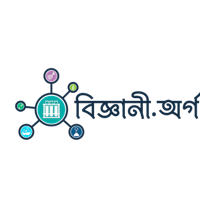
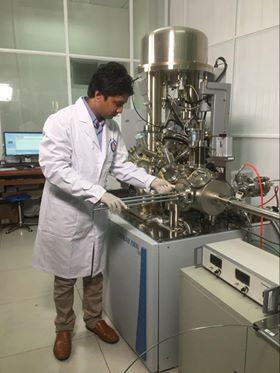

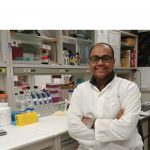
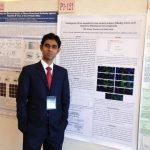
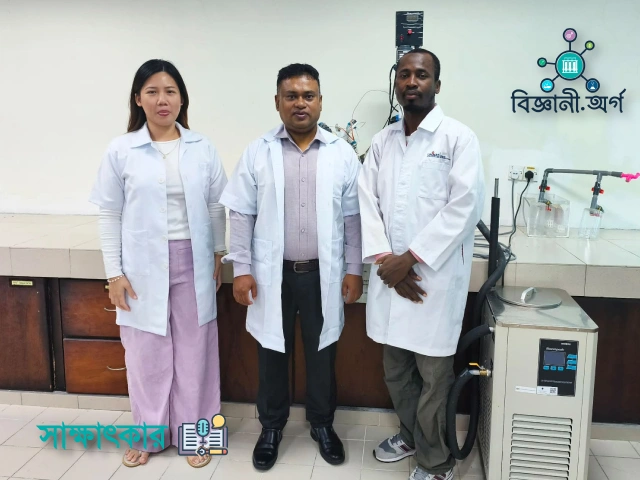
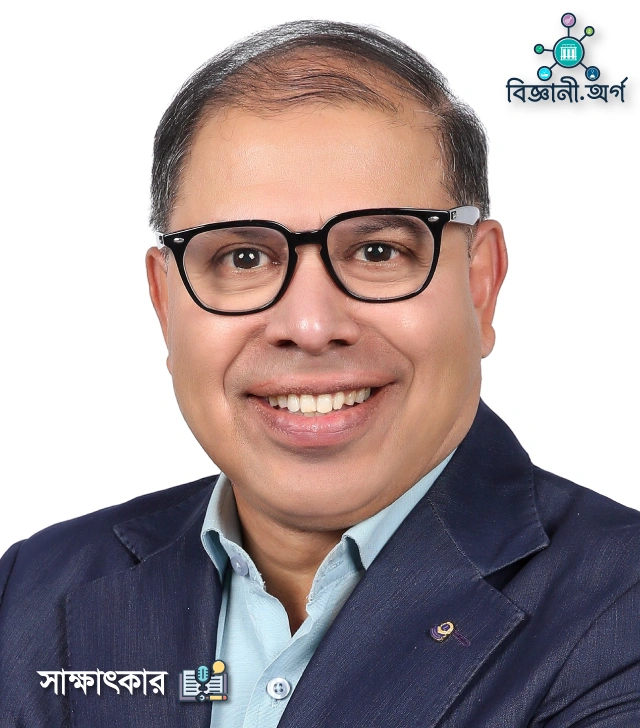
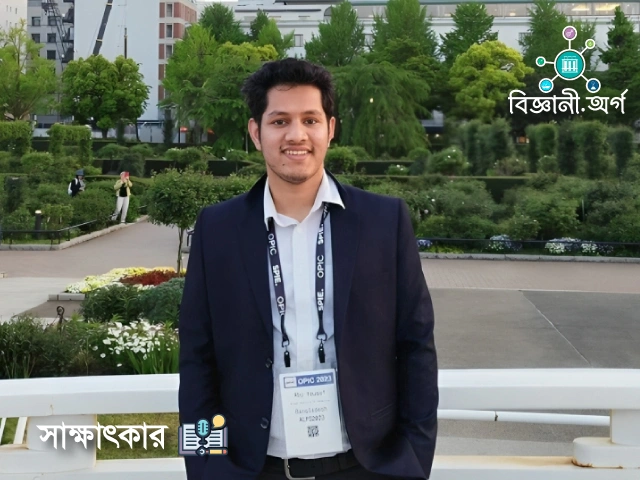
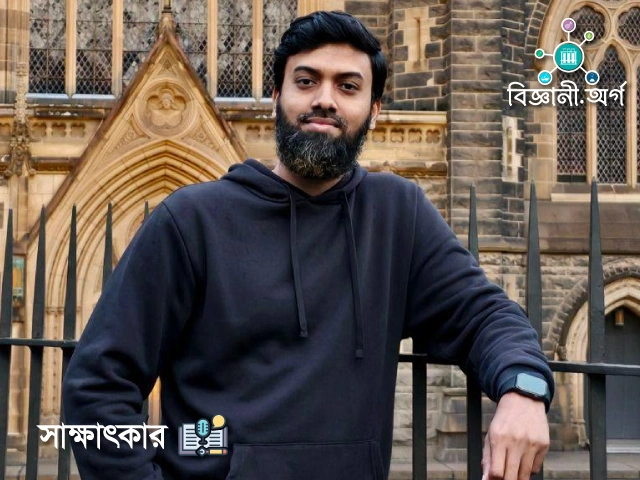
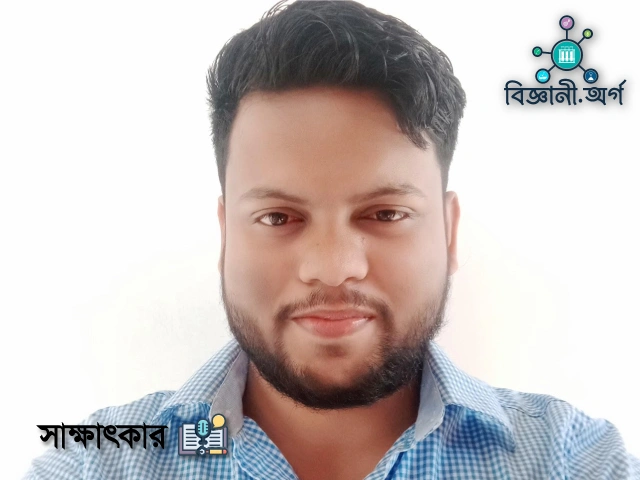
Leave a comment